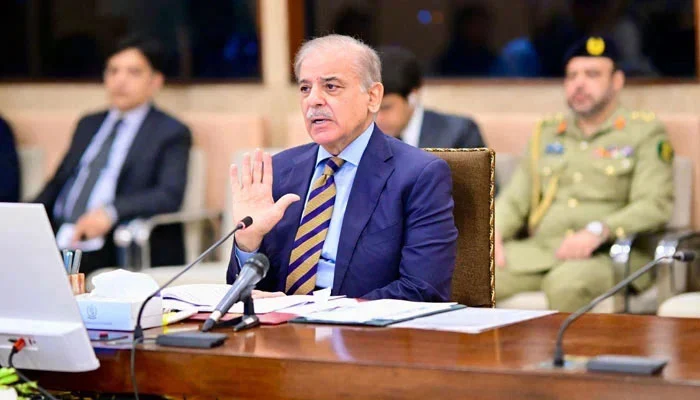By Mehtab Haider
Published in The News on July 25, 2025
ISLAMABAD: Prime Minister Shehbaz Sharif’s new committee, headed by Minister Ahsan Iqbal, has proposed national executive service (NES) with lateral entry and compensation overhaul, modeling army HR practices.
The protection of tenure-based postings is also proposed in the recommendations for the civil service reforms. The depoliticization of bureaucracy has also been highlighted to improve service delivery. The committee also discussed granting permission to allow Urdu as a medium of language for inclusion.
The civil service reforms have proved to be a non-starter so far despite several efforts in the past but for the first time Minister for Planning Ahsan Iqbal shared some basic recommendations with a select group of economists, technocrats and journalists on recruitment, training, establishment of NES and allowing lateral entry as well as improving compensation package to overhaul the civil service in Pakistan. There are a total 48 core recommendations.
Earlier, the high-powered committee held consultations with different stakeholders. They also reviewed and analyzed Pakistan Army’s MS branch. From this analysis, they found seven key insights. These insights included a structured pyramid hierarchy. In this hierarchy, 100 percent progression was given to majors, 64 percent to Lt Cols, 11 percent to Brigs, and only 5 percent to Maj Generals. In the army, positions are based on operational needs. They’re also determined by psychometric, emotional, intelligence and leadership assessments. The approach emphasizes putting the right person in the right job, focusing on specialization. There’s rigorous and mandatory training through quality faculty and trainers. Evaluation of evaluator performance is multitier, covering staff, field and training roles. Promotions are based on objective evaluation by promotion boards, using collective wisdom rather than individual discretion. The promotion criteria are specifically broken down as follows: 60 percent ACR/ground performance, 20 percent training, 10 percent discipline and 10 percent war.
This committee also recommended creation of performance review boards with independent performance observers. It called for establishment of NES open to private sector personnel entry, adoption of pyramid model, specialized skills and turning Establishment Division into HR Division. It also suggested introducing indexation compensation for linking performance with pay and Rs5 million additional structured benefits for best performers and provision of tax reliefs. It also recommended market-based salaries. This high-powered committee also conducted studies of western and comparable economies to evaluate the performance of civil service and to replicate their good experiences in Pakistan.





